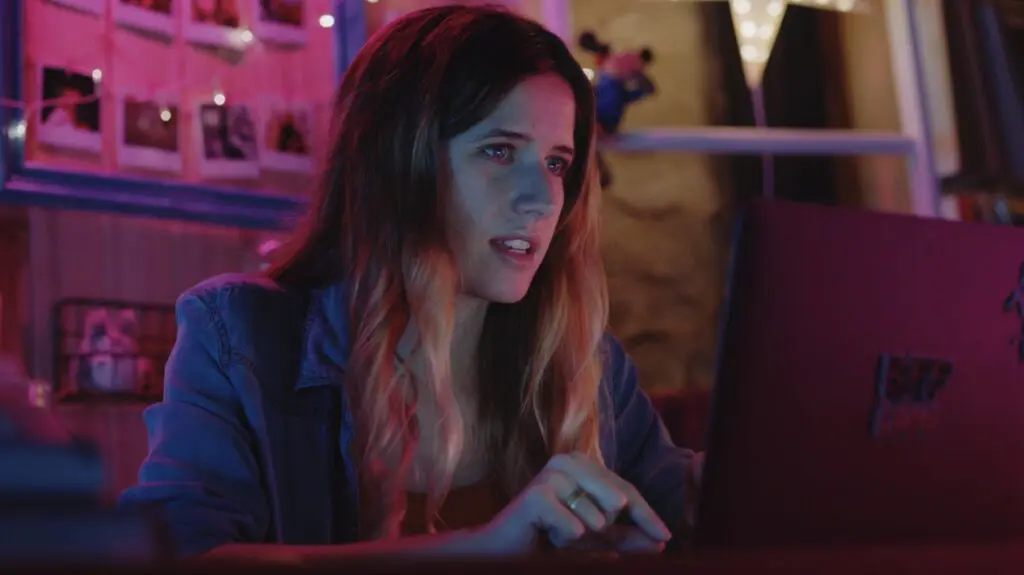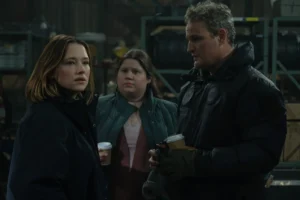It’s Coming From Inside The Screen: Cyber Horror (Final Girls Berlin) shorts programme
Final Girls Berlin Film Festival is — surprise, surprise — virtual this year, and takes place from 4 to 7 February. It comprises a varied mix of talks, feature films, and shorts programmes, as well as a screenplay writing workshop. This first shorts programme is themed on technology, and I’m pleased to see that none of the content comes across as Luddite: in these stories, technology itself isn’t a problem, but the people who use it (or overuse it) are.
Spyglass
(dir. Javi Prada, Spain, 2020)
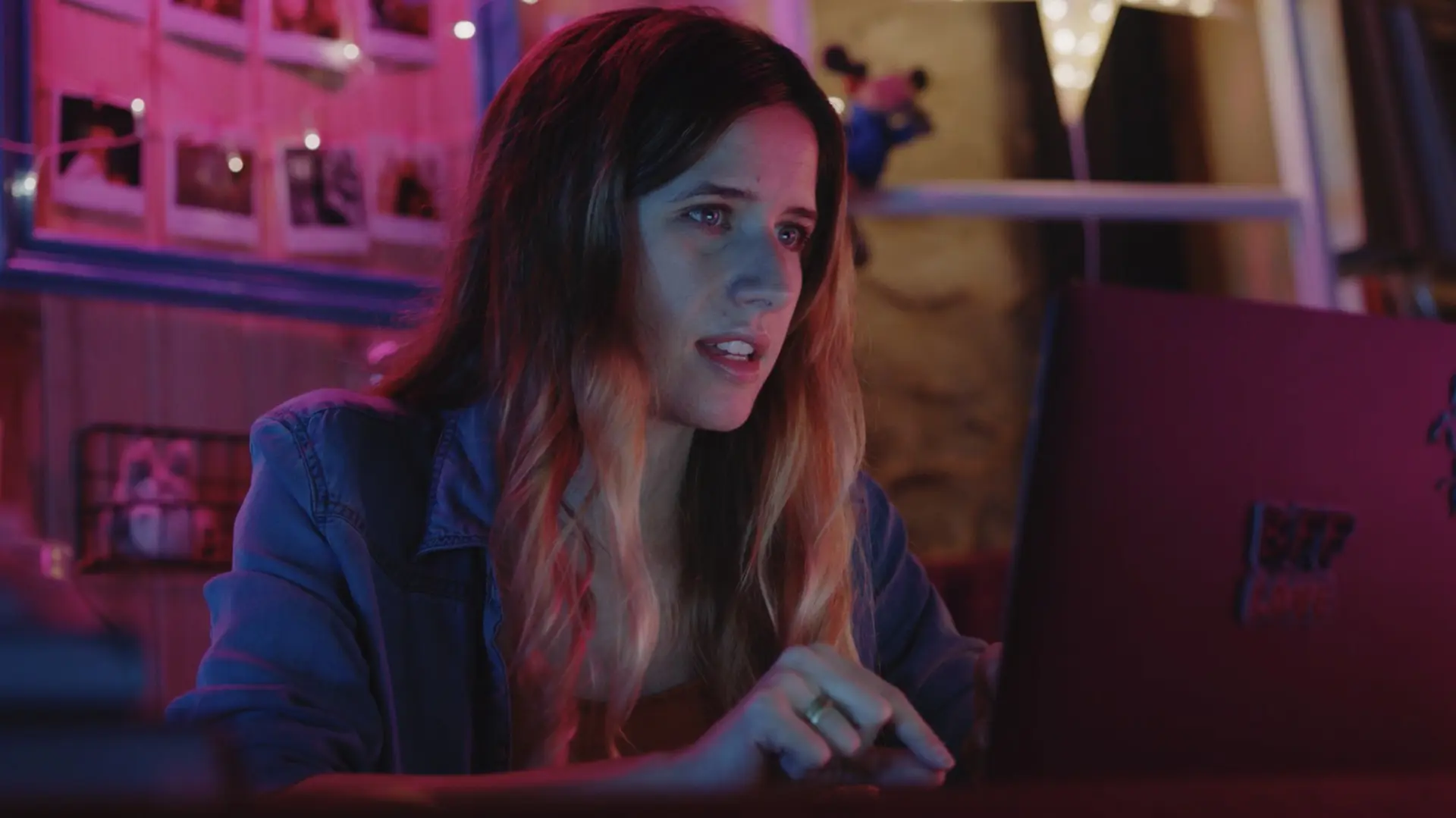
Paula is a young influencer who has organized a crazy new challenge, an experiment with the Spyglass app.
This one was very effective. We’ve seen films about social media, vloggers baiting followers, etc., but this one was especially interesting in that Paula was negotiating (to one degree or another) with several stakeholders; inside her home, in society, on her screen, and her own courage. Perhaps it’s stupidity, rather than courage; and Paula Muñoz shows how uncertain she must feel about which it is. Sharply timed and performed, with buzzing brightness and fresh comments appearing on her Spyglass screen every moment, this is a short, sharp Jackass for the online age. If only the subtitles had spread as far as those comments.
Don’t Text Back
(dirs. Kaye Adelaide & Mariel Sharp, Canada, 2020)
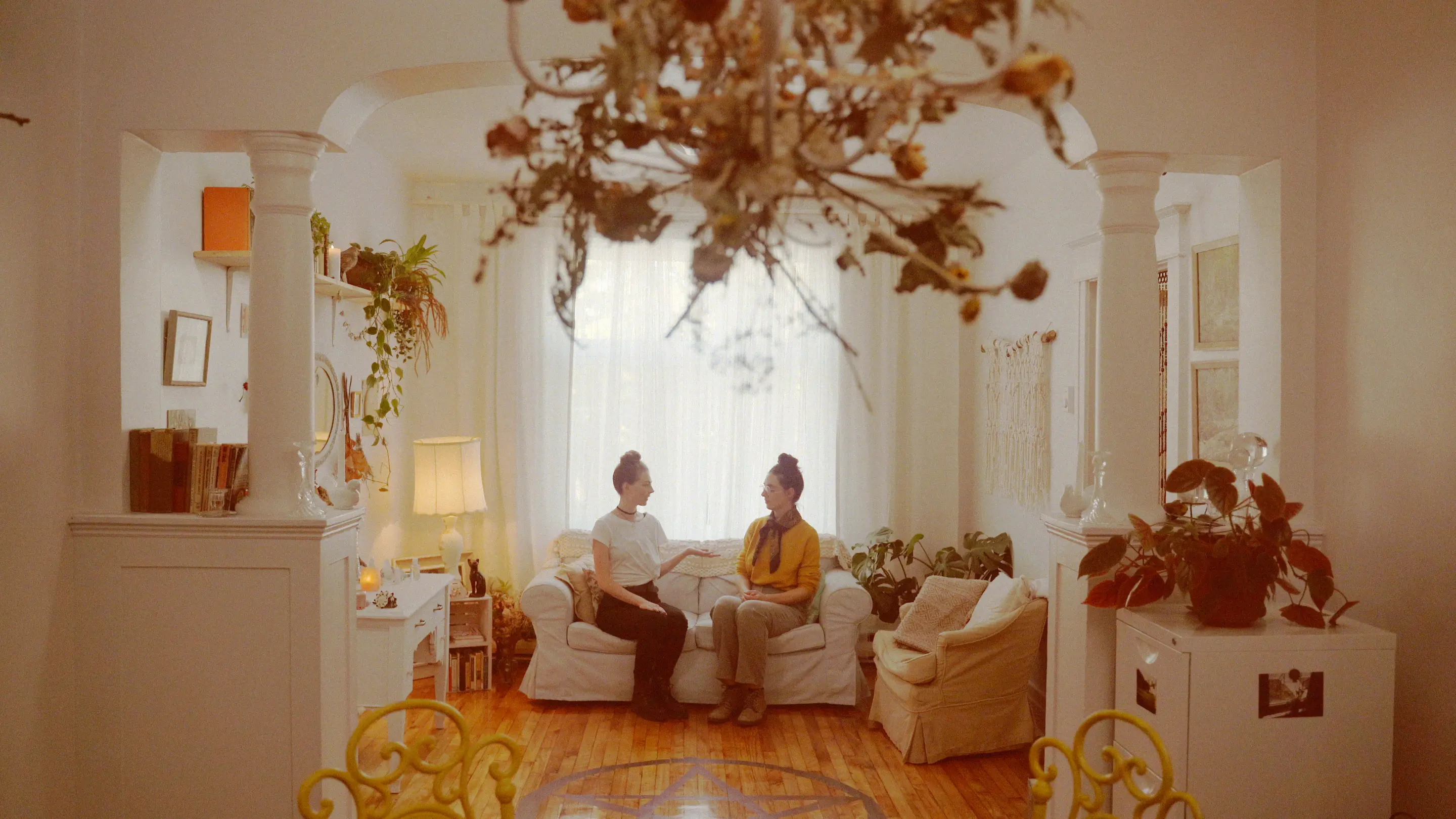
A woman seeks the help of an energy healer to rid herself of a cursed necklace that strangles her every time she doesn’t text back her bad Tinder date.
This was funny: a bright, short satire combining myriad new age and online dating clichés to produce something feminist, in a quirky and modern fashion. Kelly (the client) and Jaren (the “energy healer and graphic designer”) are such contrasting women that it’s worthy of a victory air punch when they get along and defeat evil. Sharply written characters and witty dialogue: loved it.
Fragile.com
(dir. Alison-Eve Hammersley, USA, 2020)
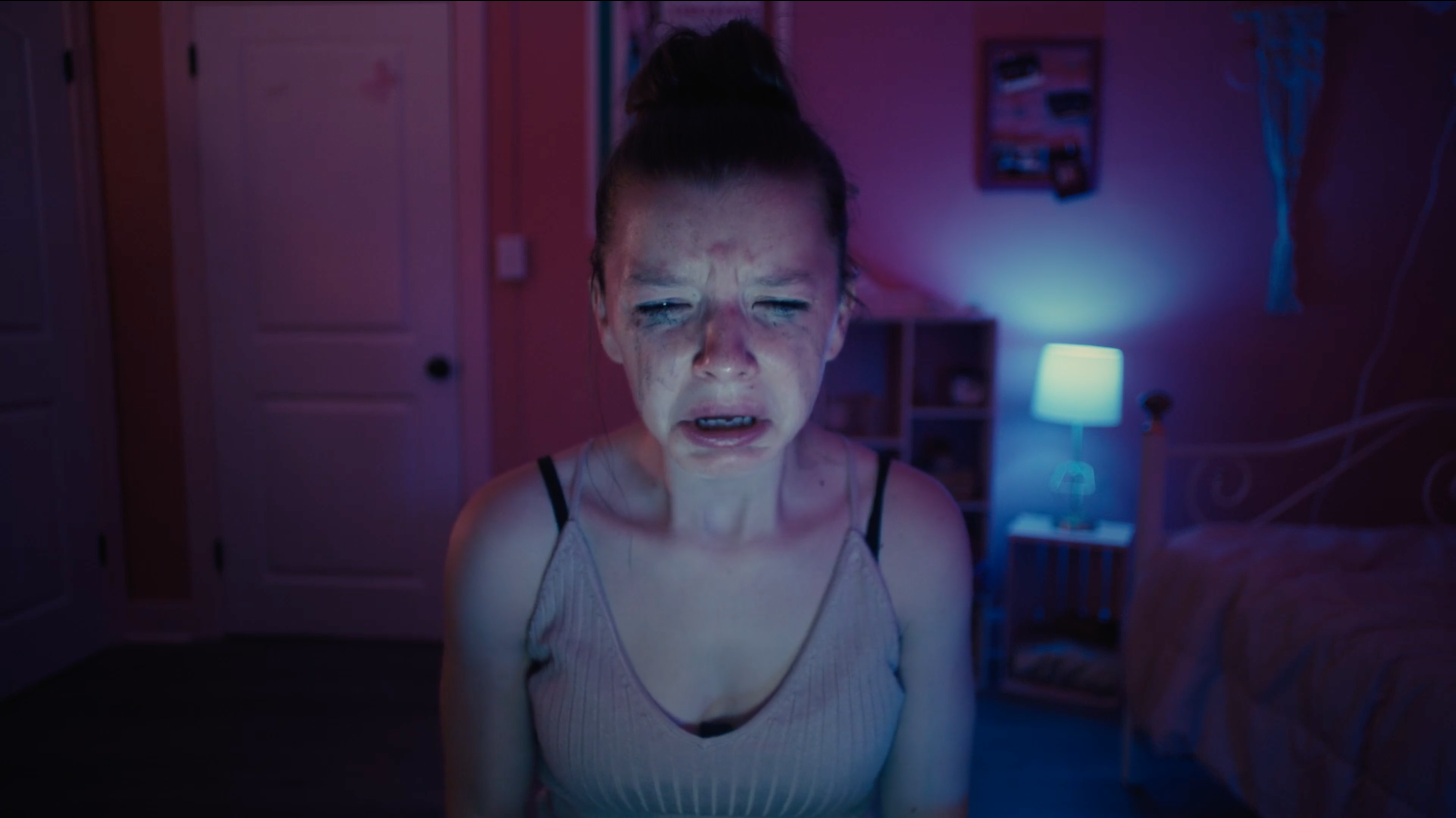
A teenage girl who more than anything wants to be told she’s special is approached by a charming man who promises her fame, fortune, and affection—if she agrees to livestream herself crying for his niche website, Fragile.com.
So imagine instead of paying to watch women deliver an x-rated show, men can pay to watch a teenager cry. That’s the premise here, with young women being taken advantage of, and learning the consequences of willingly remaining in this “victim mode”. Fragile.com is surprisingly creepy, especially after the last one… and especially because it felt so plausible. Impressive, too, because it managed to touch on so many emotive themes: rejection, fitting in, self-worth, etc.
Swipe Up, Vivian!
(dir. Hannah Welever, USA, 2020)
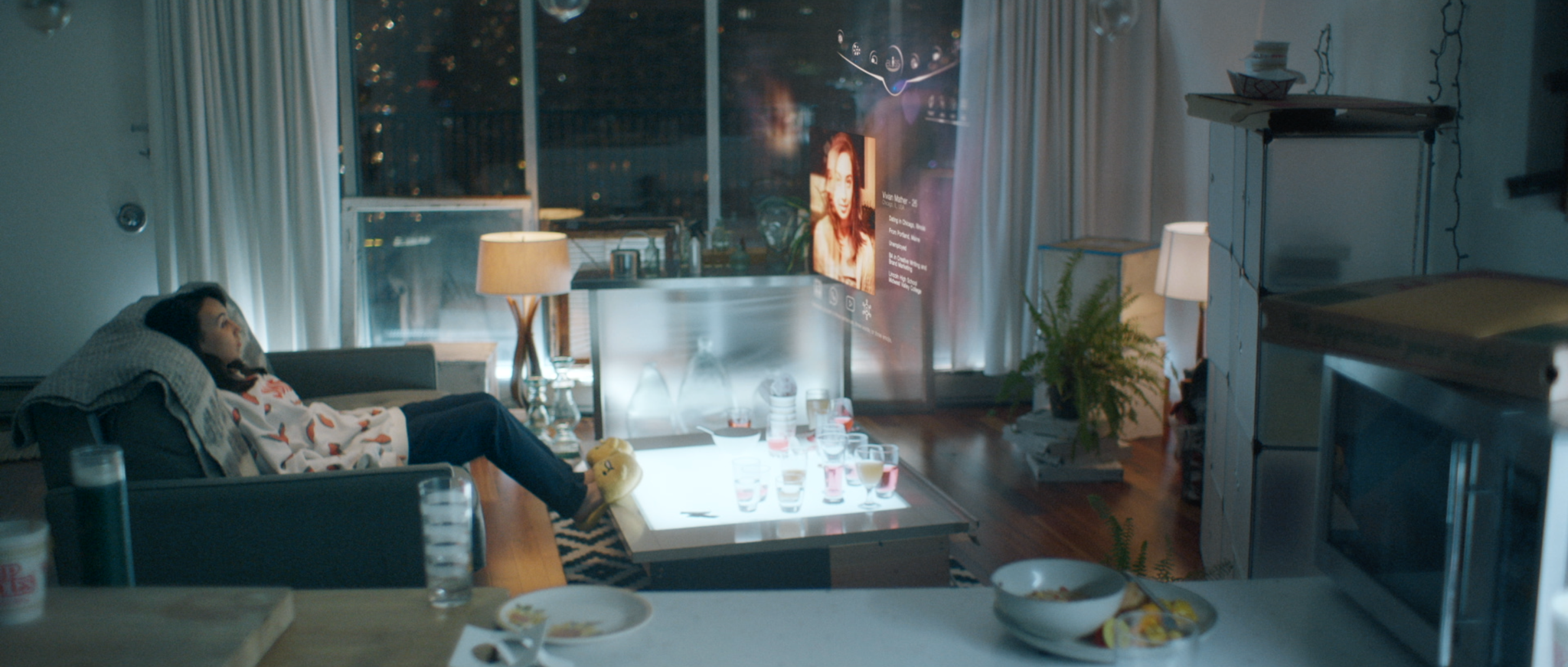
Two agoraphobic women find love via a virtual dating app
That summary is really too simplistic: this humorous tale sits against a dark backdrop of curfews and empty streets, in a slightly futuristic city. As we may have discovered during this last year, agoraphobia may not be an unreasonable response to an overwhelming world. Vivian accepts herself as she is, but doesn’t feel understood by her sister who assumes she is lonely. She’s not lonely as such, but sometimes it would be handy to have someone around, so she takes the plunge on the app Bliss to see the “beautiful humans” it has selected for her. Nice to see she’s offered people of more than one gender (I wonder if that’s the default in the future? )This is a perceptive and gently romantic little satire, about how technology enables connections, but at the same time puts pressure on us. I’d love to know more about their world though.
Kalley’s Last Review
(dir. Julia Bailey Johnson , USA, 2020)

Kalley longs to be a social media star with her skincare Insta videos. With her first sponsorship, she’s excited to test this new product on her face and share the results with her beloved followers. When things begin to take a turn for the worse, we fear how far Kalley will go to remain in the public eye.
A deliciously nasty horror satire this time. I’m reluctant to laugh at someone for needing attention, and I’m sure there must be better ways of earning it; but I couldn’t help watching, grimacing at her experiment and hoping it wouldn’t go the way I thought it was going. This one is a little different from Spyglass in that we only see Kalley’s performance/recordings, and no feedback from her followers; consequently, the production is much simpler. It’s apt though, and allows extra effort to go into special effects… which are horribly good!

